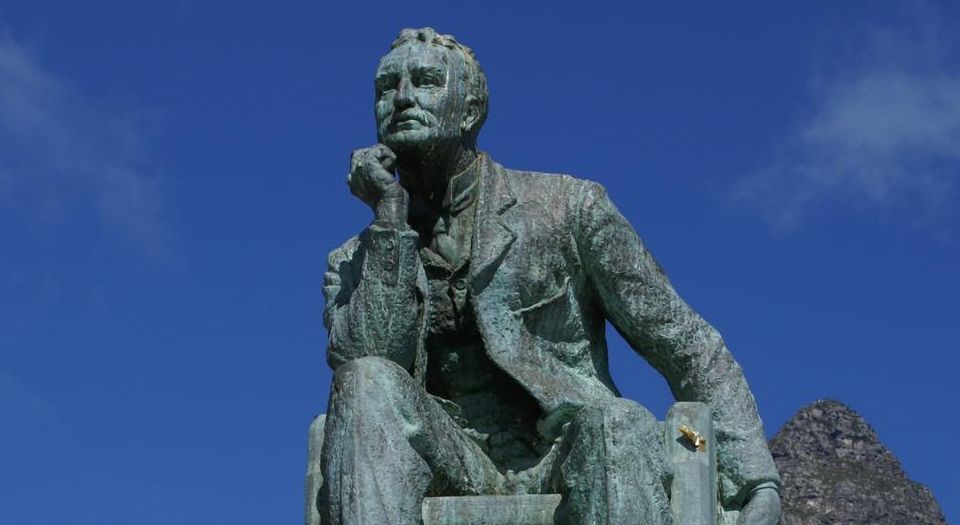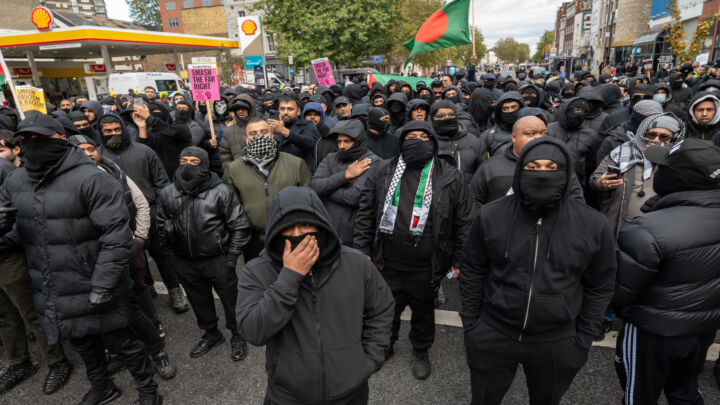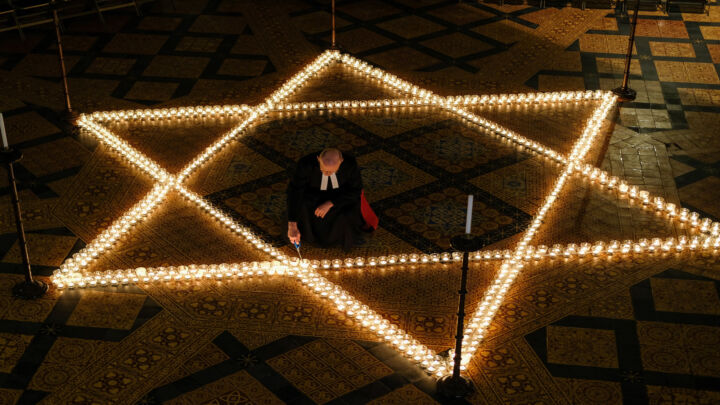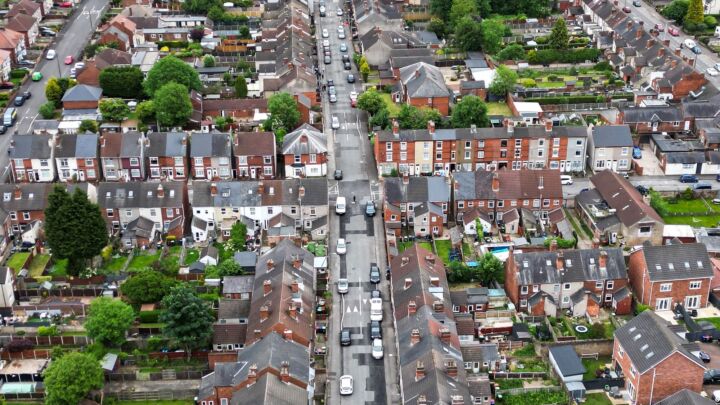Rhodes to nowhere: smashing statues won’t change South Africa
South African students should focus on fighting the ANC, not past injustices.

Want unlimited, ad-free access? Become a spiked supporter.
Students at South Africa’s universities are defacing centuries-old statues of the old regime, demanding their removal and the renaming of all buildings and institutions that bear the names of colonial figures. For many commentators in the South African media, these students are anti-colonial revolutionaries. However, the reality is quite different. They are merely the disillusioned children of the ANC their parents voted for – the people for whom the promises of a better life, made by Mandela and his colleagues, are still far from being realised.
On Monday 9 March, 30-year-old politics student Chumani Maxwele threw a bucket of human waste over the 81-year-old statue of Cecil John Rhodes that stands in front of the University of Cape Town (UCT). Maxwele said he wanted to end the division between black and white students on campus, and to eradicate the Eurocentricity he claims is still rampant at the institution. (For the online wing of the campaign, see #RhodesMustFall.)
His stunt sparked similar protests around the country, each with their own pithy hashtag. At Rhodes University in Grahamstown, students have demanded that the name of their institution be changed (#RhodesSoWhite). And at the Howard College site of the University of KwaZulu-Natal (UKZN), students defaced the statue of King George V which stands at the foot of the college steps, throwing white paint over it, covering the head with a Rastafarian beanie and wrapping a blanket around it with the daubed slogan ‘End White Privilege’. Moreover, political-studies students at the University of the Witwatersrand are demanding that their curriculum be changed in order to include African and global South thinkers, from Frantz Fanon to Lewis Gordon to Angela Davis.
But the campaign doesn’t stop there. Students involved in these demonstrations also argue that the removal of these symbols is only the first step in addressing the embedded racism of their institutions. Keenan Hendricks, speaker of the UCT student parliament, said: ‘This is not just about the statue. Just because the statue will be removed, and it will be removed, doesn’t change the institutional racism at the university. It doesn’t change the fact that staff transformation is not happening fast enough.’
‘It was probably not something which had bothered many students before the University of Cape Town campaign’, a third-year social sciences student at UKZN told IOL News. ‘However, I believe it has triggered a conversation that, as a country, we have never dealt with. The vandalising of the statue reflects how society is divided. We can’t say Apartheid is behind us if we are still praising the symbols of the past.’
There are some dissenting voices, however. A second-year law student, who also spoke to IOL but did not want to be named, said that, of all the campuses in South Africa, Howard College was ‘the least racist’. ‘We have fairness in everything. We have lecturers of different races, everything is equal. So this is absolutely pointless. There is no such thing as white privilege. Everybody has equal privilege on campus. Those who did this were just trying to cause a commotion and get attention’, she said.
However, it seems that many student radicals see these campaigns as a way of highlighting the inequalities that exist in post-Apartheid South Africa. Brad Cibane, currently a Franklin Thomas Fellow at Harvard Law School, wrote a piece for the Daily Maverick saying: ‘Our democracy inherited the Apartheid base and superstructure. It supports economic inequities and perpetuates Apartheid-style brutalities against the blacks and other previously oppressed groups. The rainbow nation still has “whites only” areas like Kleinfontein (Pretoria) and Orania (Northern Cape). Blacks entering Worcester, a suburb in the Western Cape, must carry a “green card”. These are just the towns we know about.’
This is precisely the point. The rainbow nation promised by the ANC has not come to pass. But this is not, as Cibane suggests, caused by a post-colonial hangover, embodied by statues and symbols. The fault lies with the ANC itself.
After 20 years in power, the ANC has failed to provide decent housing and services for the majority of South Africans. Presiding over a virtually static economy, it has failed to provide productive employment for the majority of young people leaving school. But instead of tackling this issue, the ANC has urged universities to take in school leavers from the majority black population. Arguing that all school leavers should have a place at university, they have appealed to universities to implement quota systems based on race to make allowances for underprivileged backgrounds.
UCT, which is considered one of the top universities, was one of the universities that refused to implement a quota system based on race. This decision has come under particular scrutiny recently, and has spurred on the current campaign against the statue at Rhodes. Universities which once promoted the idea of scholarship, and selected students on their ability to research, regardless of their skin colour or background, are today being transformed into training colleges for wannabe jobseekers, with no hope of a proper job at the end of their years of attendance.
The fact of the matter is that dismantling the Rhodes statue will not change this reality for South African students. Of course, Rhodes was an imperialist who wished to colonise Africa on behalf of Britain. He certainly held no candle for the natives, going so far as to introduce the Glen Grey Act, often seen as the blueprint for the Apartheid regime to come. The act severely restricted Africans’ access to land ownership, so that they could not become owners of the means of production, and imposed a 10-shilling labour tax on all Africans who could not prove that they had been in bona fide wage employment for at least three months in a year. This act pushed thousands of Africans into the cheap migrant labour market that fed the Apartheid mining industry.
Today, however, it is the ANC that is against the interests of the African masses. This was brought into stark relief with the Marikana massacre in 2012, in which ANC-ordered forces shot dead 34 striking miners for having the temerity to demand better working conditions and wages. And on this issue, the student protesters are silent. The shrill demands to remove all traces of Rhodes reflects their deferred frustration at their inability to tackle the government in power today. Harping on about past injustices and destroying the statues of dead men keeps the ANC smugly in control.
Sharmini Brookes is a writer based in Johannesburg.
Picture by: Danie van der Merwe/Wikimedia Commons
£1 a month for 3 months
You’ve hit your monthly free article limit.
Support spiked and get unlimited access.
Support spiked – £1 a month for 3 months
spiked is funded by readers like you. Only 0.1% of regular readers currently support us. If just 1% did, we could grow our team and step up the fight for free speech and democracy.
Become a spiked supporter and enjoy unlimited, ad-free access, bonus content and exclusive events – while helping to keep independent journalism alive.
———————————————————————————————————————————–
Exclusive January offer: join today for £1 a month for 3 months. Then £5 a month, cancel anytime.
———————————————————————————————————————————–
Monthly support makes the biggest difference. Thank you.










Comments
Want to join the conversation?
Only spiked supporters and patrons, who donate regularly to us, can comment on our articles.